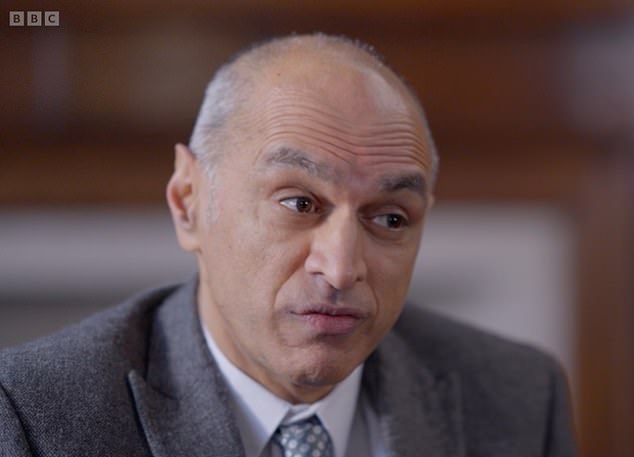The Government’s leader on obesity healthcare goals has claimed overeating is down to a person’s genes rather than their willpower.
Professor Naveed Sattar, of Glasgow, suggested it is wrong to assume people are ‘lazy or greedy’, and we should instead consider the genes they have for appetite.
It comes as around 3.4million adults in the UK are now eligible for weight loss drugs on the NHS – with one in three people considered overweight.
Speaking on BBC One’s Panorama: Weight Loss Jabs and the NHS, Prof Sattar said it is harder for some to resist unhealthy foods than others.
‘Many people still think individuals are lazy or greedy. The reality is our genes for appetite have not changed over the last 50 years. But what has changed is the environment,’ he said.
‘So we’ve made it far too easy for people to consume too many calories.’
He added: ‘I think it’s genes. The genes dictate your ability to withstand food. If you ask 99 per cent of people living with obesity, do they want to be living with obesity, the answer is no.
‘They’ve tried their best within the context of their lives to not be overweight or living with obesity, but they haven’t managed.’

Professor Naveed Sattar (pictured) suggested it is wrong to assume people are ‘lazy or greedy’, and we should instead consider the genes they have for appetite

Prof Sattar said it is harder for some to resist unhealthy foods than others

An estimated 3.4million Brits meet the criteria to receive a prescription for Wegovy and Mounjaro which would cost £10billion a year
During the programme, Professor Barbra McGowan, clinical lead for obesity at Guy’s & St Thomas’ NHS Trust, suggested people need to actively decide to change their behaviours to keep their weight down.
‘I think it’s important to say to patients that the drug will help you to get there, but it’s really, really important that behaviours are changed, that lifestyle is changed, that diet is changed,’ she said.
Weight loss drugs ‘could bankrupt the NHS’ if all eligible patients were to be prescribed them, it has been revealed.
An estimated 3.4 million Brits meet the criteria to receive a prescription for Wegovy and Mounjaro which would cost £10billion a year.
All weight loss jabs, including Ozempic, contain semaglutide which mimics a gut hormone that send signals to our brain telling us we are full and slows the transit of food through the stomach.
Wegovy and Mounjaro can help people lose between 10 to 25 percent of their body weight.
Research suggests that Mounjaro leads to more weight loss than Wegovy with an average of about 25 per cent after one year, compared to Wegovy’s 16 per cent.
Treatment with Wegovy is limited to two years but Mounjaro, dubbed the ‘King Kong’ of weight loss jabs, has no limits on how long patients can use it.
However, the NHS is rolling out Mounjaro over the course of 12 years due to concerns it may overwhelm services.
In the next three years it is estimated that 220,000 people in England will benefit out of the 3.4 million who are eligible.











